Gender Equality Debate: Societal and Political Perspectives
VerifiedAdded on 2020/04/21
|5
|928
|426
Essay
AI Summary
This essay presents a debate on gender equality, addressing the historical and ongoing challenges of gender inequality in society. It explores the concept of equal rights for both genders, highlighting how unequal treatment affects the entire population and leads to disparities in education, employment, and societal roles. The essay emphasizes the importance of recognizing and valuing the capabilities of women, advocating for the eradication of discriminatory practices and laws, and promoting a more equitable society. It discusses the impact of unconscious biases and stereotypes, and stresses the need for increased female employment and equal opportunities. The author references several academic sources to support the arguments and underscores the urgency of addressing gender inequality to reduce violence and ensure the overall development of humankind. The essay promotes the need for stronger global support for women and highlights the importance of gender equality as a key goal for social and human rights.
1 out of 5
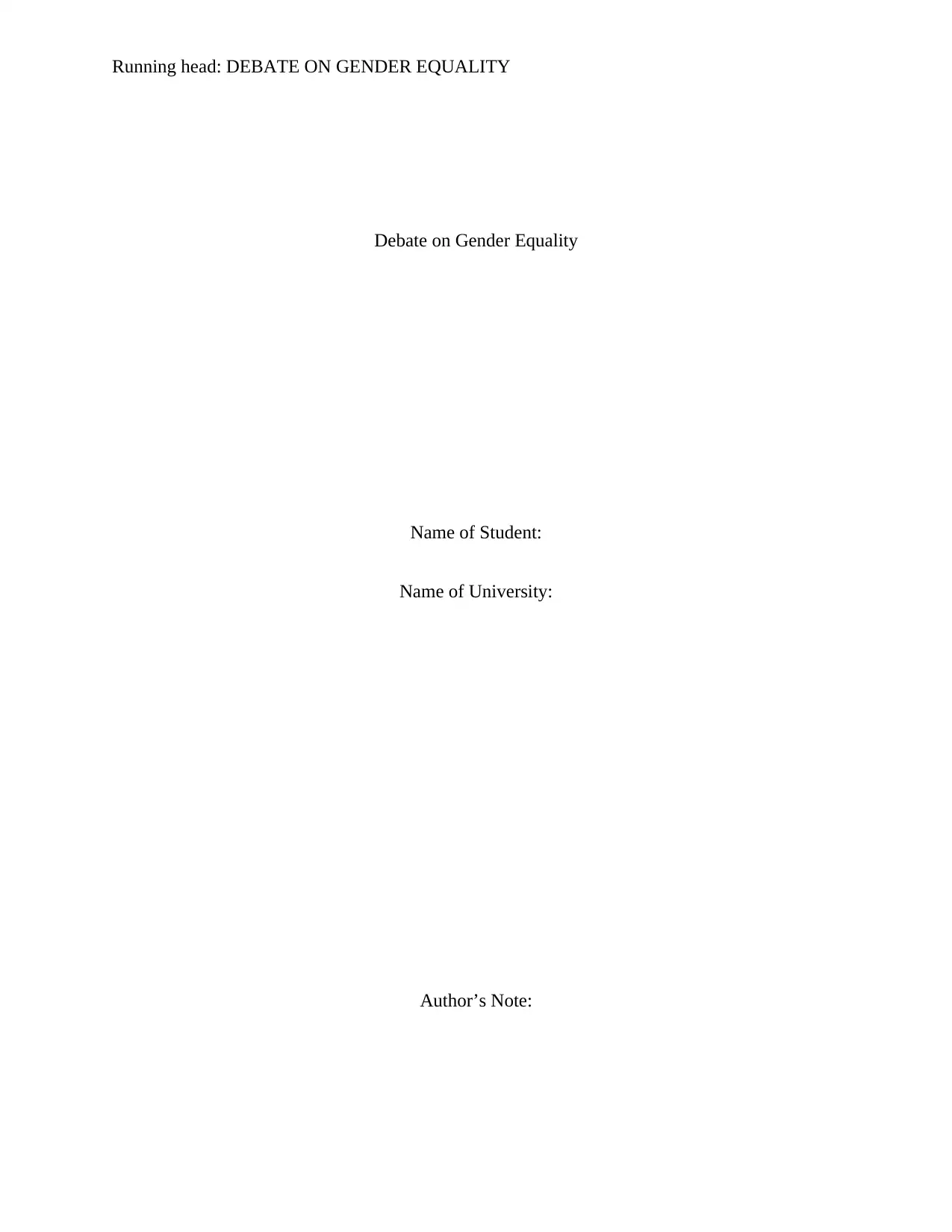
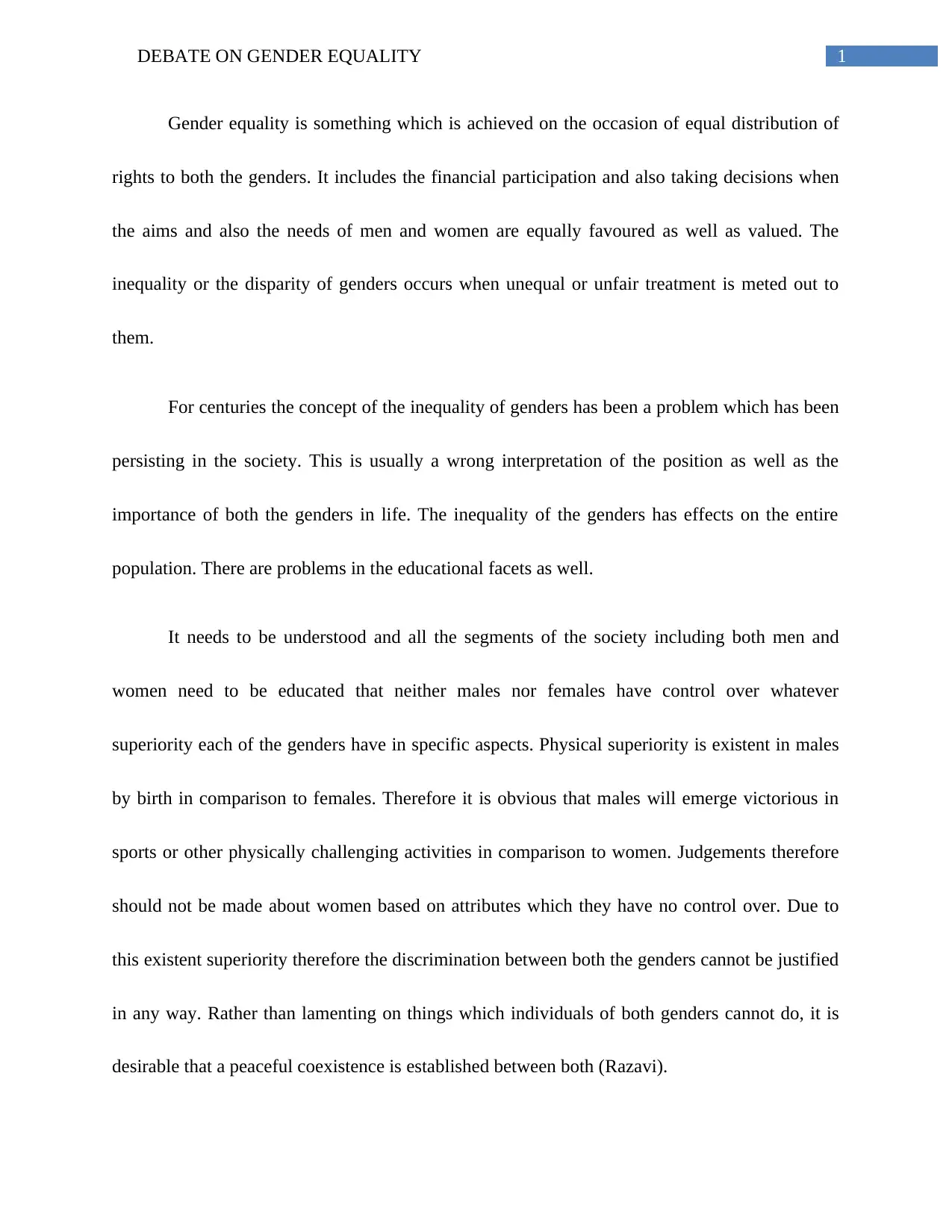
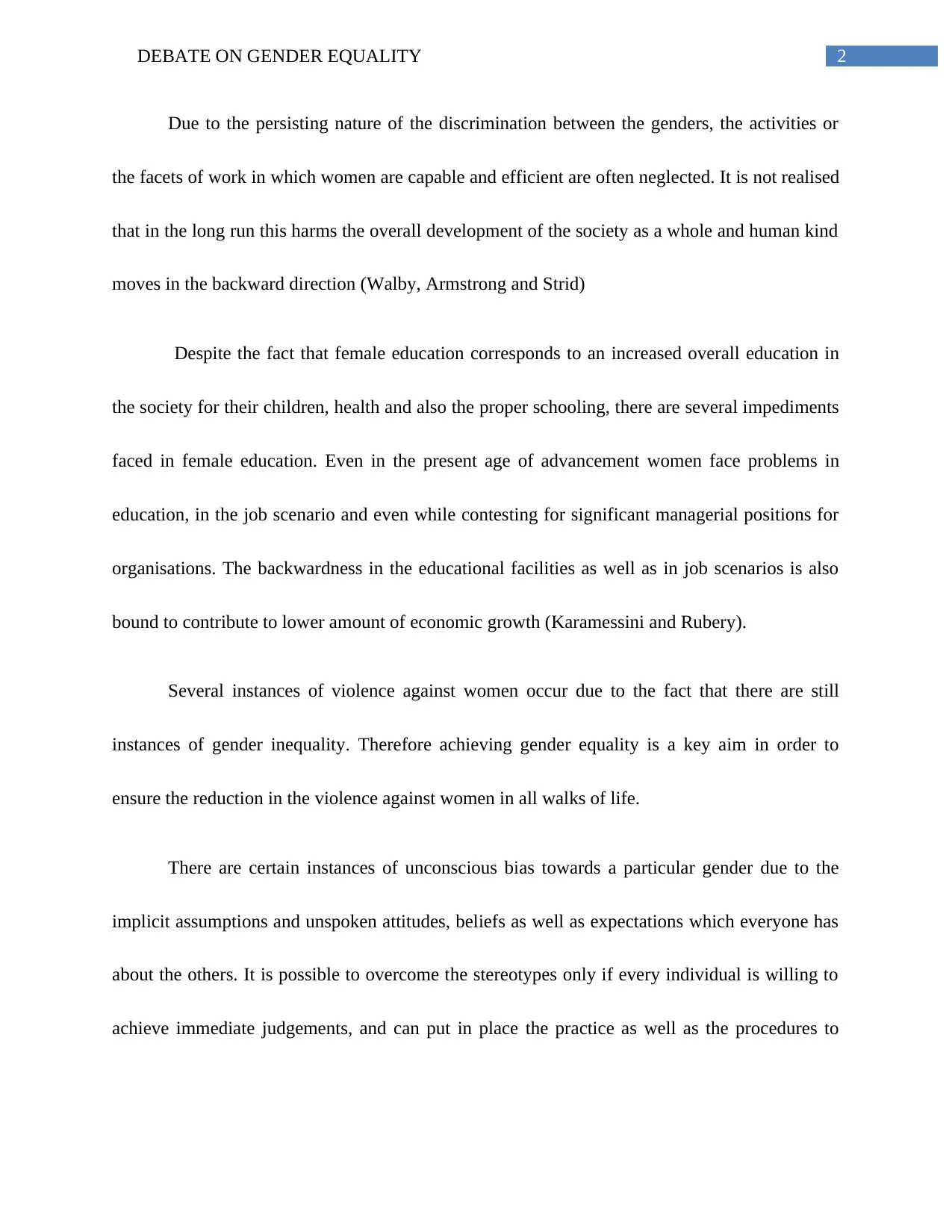

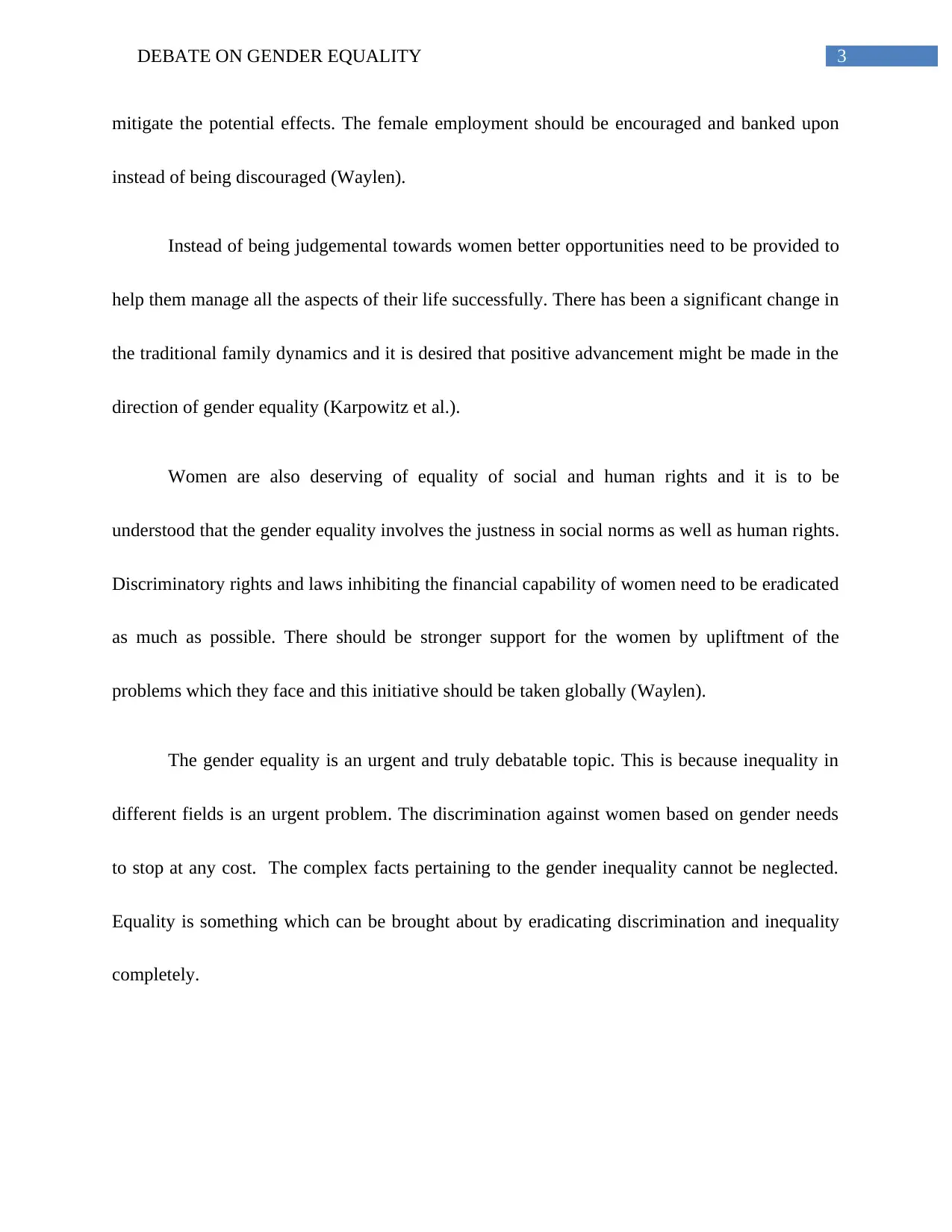
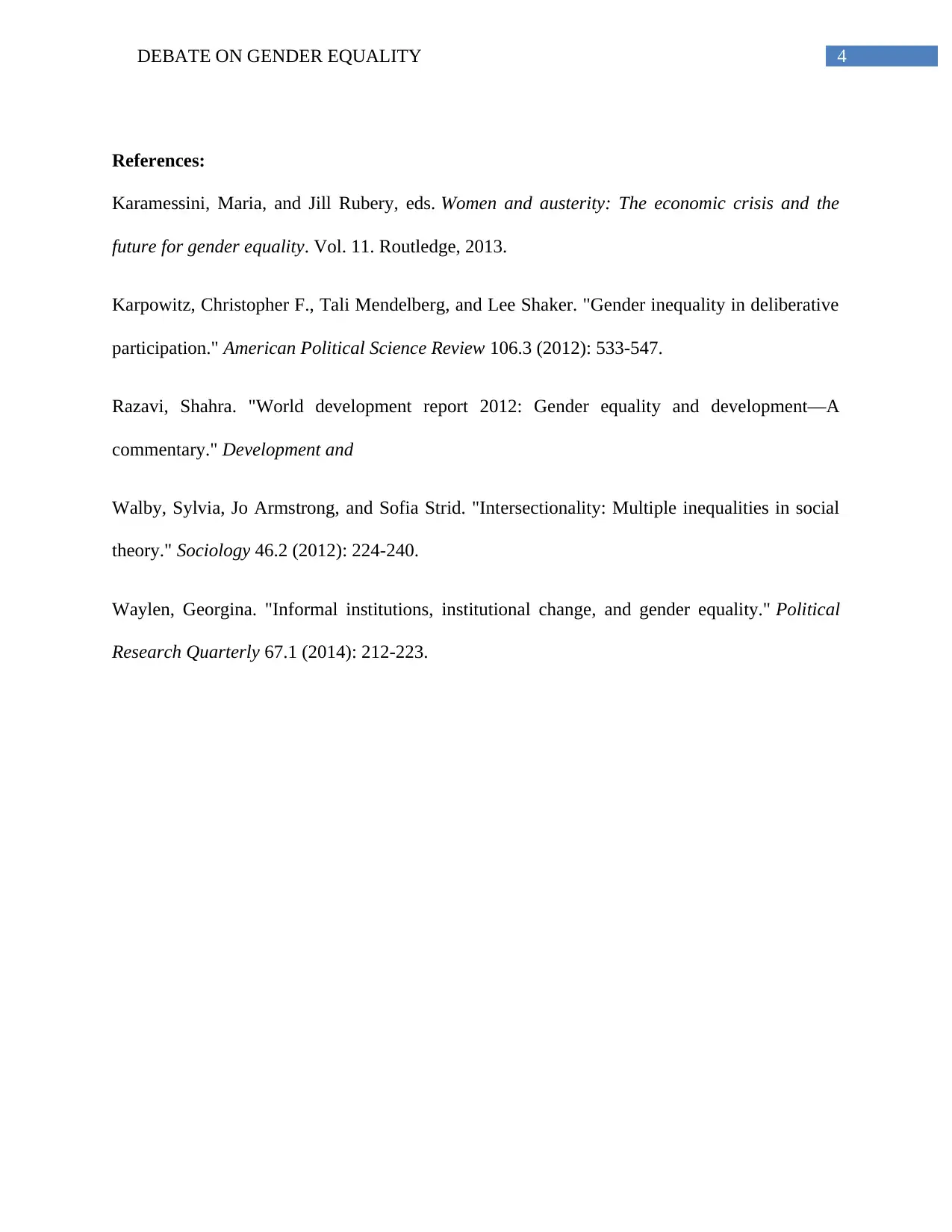





![[object Object]](/_next/static/media/star-bottom.7253800d.svg)